“Securing America” show with Frank Gaffney on the Real America’s Voice network interviewed STARRS Board of Advisor and President of TakeCharge Kendall Qualls.
Kendall explains the whole DEI initiative that’s permeating our country, and especially in the military, in two different ways. One, he gives you a personal story of the legacy of his family. Two, he tells why he started TakeCharge and the data that really supports why we’re being deceived as a nation.
Watch:
Transcript
Frank Gaffney
Welcome back. And what a pleasure to say that we have another spectacularly impressive individual with a background in the United States Army. We’re going to have my colleague and wingman for this special edition of Securing America, Lieutenant General Rod Bishop, introduce Kendall Qualls and we’ll have a visit with him about his perspective, both from his time in uniform and what he’s seen since with respect to DEI in the military. Welcome, sir.
LTG Rod Bishop
Kendall, I’m so glad to have you here. I mean, I’ve known Kendall now for close to four years. He’s become a friend in that time. He was one of our very first STARRS Board of Advisors. He has such an impressive background and CV and all the different organizations that he belongs to but the one that I’m most impressed with is the one that he founded and he’s the President of, and that’s Take Charge. The message that he has is a message that if people will listen, is the one that will bring us closer together as a country. Kendall, proud to have you as my friend. Over to you, sir.
Kendall Qualls
All right. Thank you, General. So glad to be here. I think what I can do is explain this whole DEI initiative that’s permeating our country, and especially in the military, in two different ways. One, I’m going to give you a personal story, if you will, legacy of our family, and then tell you why I started to take charge and the data that really supports why we’re being deceived as a nation.
So first, my father and my father-in-law both served and retired in the United States Army. My father-in-law actually joined the army in 1947 when it was still segregated. It was a segregated army that he served in for a year and a half or so before President Truman desegregated the armed forces. Over the course of his career, he was a combat veteran of Vietnam. He was a “Frozen Chosen”, and he was also a combat veteran in the infantry and all of his career in the infantry in Vietnam. After 30 years, he retired as a Command Sergeant Major, an E-9–highest rank on the enlisted of services, as many of you all know. He was able to do that in the United States Army.
This idea that we need DEI and diversity initiative, we’ve been doing diversity since 1947. We were the premier institution in the United States that did it well, we did it right, and we were a marquee, an example for every institution in the United States for over 60, 75 years, since the desegregation of the services. So this thing about DEI and we need to do this, it’s not like we’ve been starting from zero. This is our bailiwick.
To give me an idea, when I went on active duty and I got my bars pinned on, I could not tell you how proud my father-in-law was of me, and my father after serving 25 years. He retired as an E-8, and they were just delighted and just to see that continued legacy and then having an officer serving in their family was something that just made them both very proud. I served for five years as an artillery officer here in the United States as well as in South Korea.
I decided not to make it a career, though. I wanted to do something different. But they, my father and father-in-law, both men of the south, of the segregated Jim Crow South, told me, Kendall, do not get out. You will not be treated as fairly as you’ve been treated here in the United States Army, where you’re treated and ranked on merit and value the leadership, you could have a very successful career.
I told them both, I want to try something different. I want a different life for my family so I don’t have to move as much and maintain a family unit. We know the challenges by many families in the armed forces. Ironically, I wound up relocating more in a private sector than I did in the military. But that’s another story.
But they were overjoyed to see their son not only achieve a successful civilian career, I wound up leaving corporate America as a global Vice President of a Fortune 100 company responsible for $850 million P&L, responsible for a business unit. And not only that, but we raised five kids. I’ve been married for 38 years. We have a really God-centered family life, and we’re just blessed, absolutely blessed.
My wife and I are children of the civil rights movement. So basically, we came after the civil rights laws were passed in the late ’60s. We were the first generation to actually live a life that our parents did not.
The America that I grew up in was a very different America that they grew up in. I feel we’re obligated. We have a duty and an honor to live a life worthy of their sacrifices, not only in the black community, but overall as a nation. That’s my commitment to this. Anyway, I share this with you.
It lets you know that what’s going on now in this DEI initiative, this is not “Diversity 2.0” or “Civil Rights 2.0”. DEI is a Marxist Trojan horse permeating our nation and they’re using Black Americans.
This is the second part of the message I want to get to. But I think there was a question before I go on to that.
Frank Gaffney
Well, I just wanted to clarify a point, and I think you pretty much did. But I think you said, if I heard you right, we’ve had DEI since 1947 in the military. I think what you meant is we’ve had opportunities assured for people of merit, irrespective of the color of their skin or anything else. Not DEI, because as you just said, this is a Trojan horse, and it’s Marxist through and through.
Kendall Qualls
Exactly right. They’re using black people, and they’re using the disparities that we have in our nation today. I’ve written about this in different op-eds, several different national journals.
Here’s the issue. We do have significant disparities in the black community. When you look at academic achievement, law enforcement, financial, you see this tenacious disparities that we have in our nation.
What I have found over time that those issues, those just lingering issues that we’re facing, are not the racial discrimination issues of the ’50s and ’60s that we remember pre-civil rights.
What has happened in our nation, and it’s starting back during what they call the Great Society of the LBJ Administration offering, and I’ll just call it what it is, it was the first time in American history that the federal government financially incentivized women to have children outside of marriage.
Those social welfare programs literally changed the dynamic of the Black community starting in the early ’70s to what we have today.
So let me give you some context. When I was five years old, 80%–80% of children born in Black families were born to two-parent families. 80%!
Today is 80% fatherless homes.
In fact, in the city I live in, in Minneapolis, anywhere between 85% to 90% of children born in black families will be born to unwed mothers.
We just launched a new chapter in Memphis, Tennessee, 85.2% in 2020.
This data is national. And so, of course, we’re going to have disparities when children are growing up without fathers and they’re not getting the academic discipline, they’re not getting the academic rigor, they’re not getting the home training, they’re not getting socialized into the norms of our culture as a society, as Americans.
We’re going to see this disparity, a deficit, because we have a pipeline deficit of high school graduates, those high school graduates that are not going to college, all the way up the line to corporate America. We have over 50 volunteers in our organization, from our gangbangers to corporate attorneys to professional athletes in our organization. I’m giving an example.
Because of DEI, the state of California and the state of Delaware, lowered the bar exam requirements for their attorneys to practice law for equity’s sake. We have attorneys in our organization that we actually recorded a two and a half minute video denouncing that decision and said that they lowered those requirements, not because for equity or for DEI, they lowered them to push an agenda.
That black Americans were passing the bar exam from the 1800s, and our ancestors are rolling in their graves at this behavior of fatherless homes and lowering the standards. In fact, they would be, “How dare you? We had more challenges in our lives than you guys ever have known, and we still passed the bar exam.” Same thing we’re seeing in medical school as well. We have physicians in our organization denouncing those decisions as well.
LTG Rod Bishop
Kendall, can you just underscore something that you’ve told us for the audience on how through these DEI programs, from your perspective, put it in your own words, DOD is trying to solve the cultural societal issues that we’re facing that you just described. Or did I just say it for you? I mean, that’s what I’ve got from you.
Kendall Qualls
Sure. No, absolutely. What we’re finding is a lot of organizations, this is corporate America, the bar exams and all of these, they’re trying to fix their numbers at the top because they see such a significant gap between other ethnicities, white Americans and black Americans, for attorneys and doctors and generals and colonels. Well, you can’t fix the top end if you have a leaky bucket at the bottom end. We have a pipeline cultural problem that we let linger for 50 years.
Again, this is one of the reasons I started this organization, Take Charge, is take charge of your life, take charge of your family, take charge of your community. You don’t need permission from anyone. You don’t need a politician or government grant to fix this problem.
Frank Gaffney
Kendall Qualls, thank you. This is such an inspiring message and a lot of hope, and I think brings a lot of clarity to what’s going on with the military and why it’s not going to help it and probably not the society either. Godspeed in your work with Take Charge. Come back to us if you would. Thank you. We’ll be right back with another segment right after this.

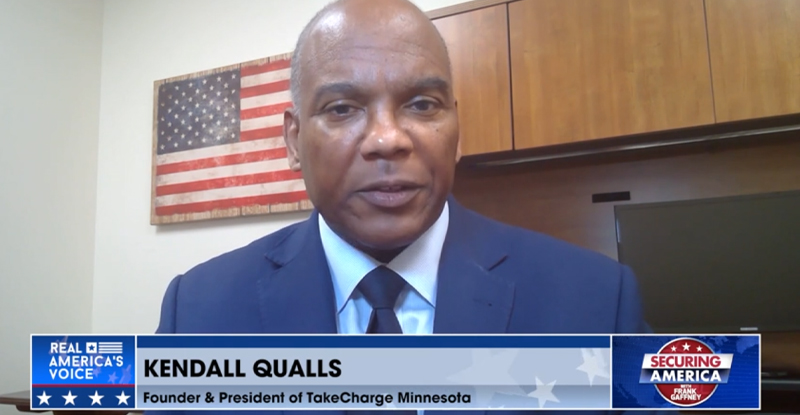
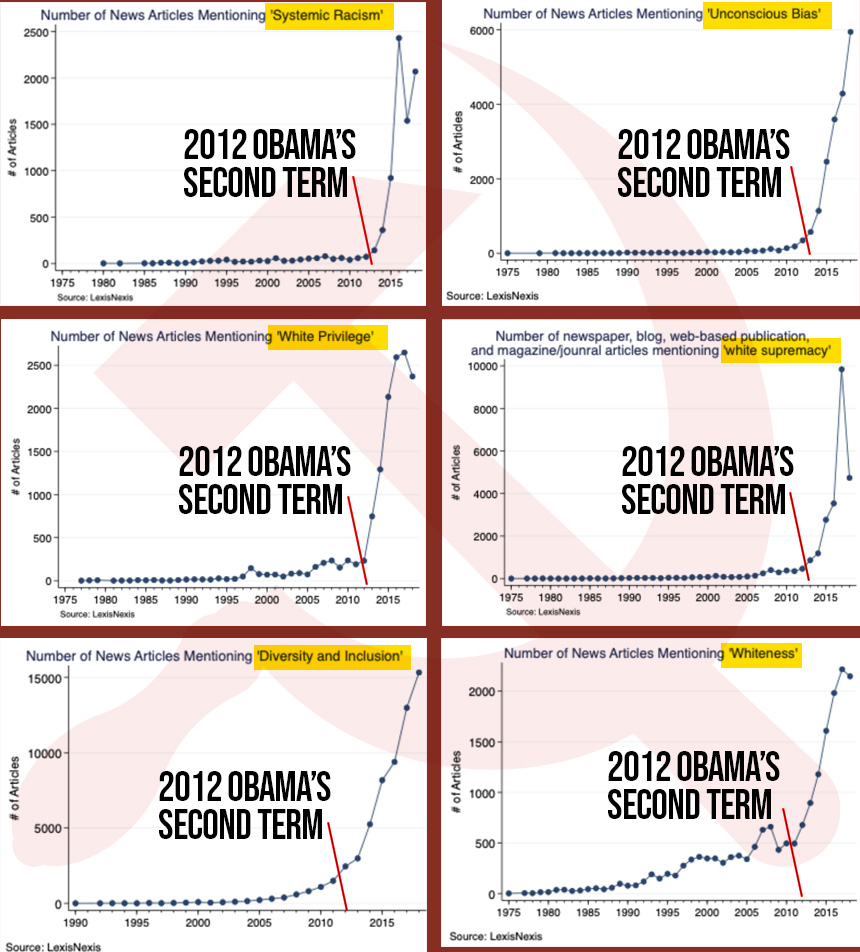
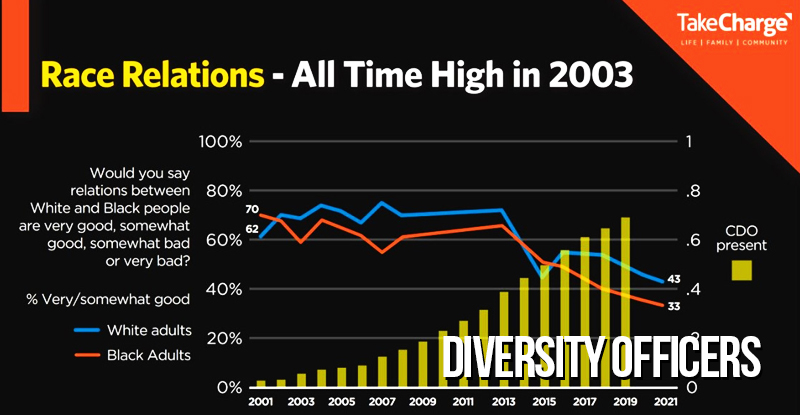



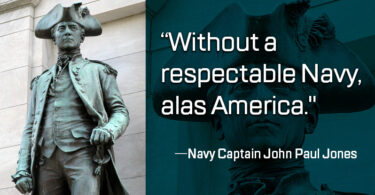

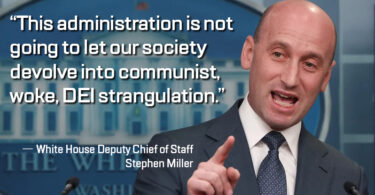
Leave a Comment